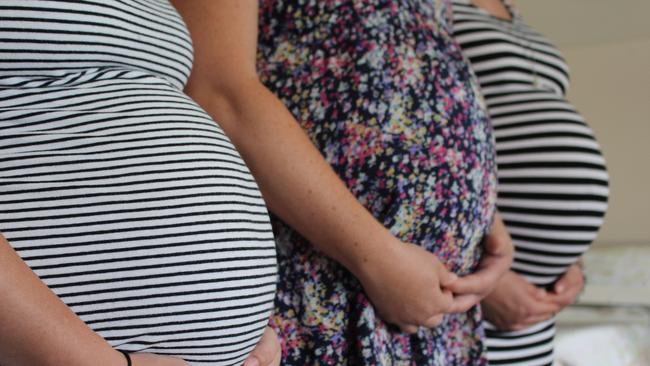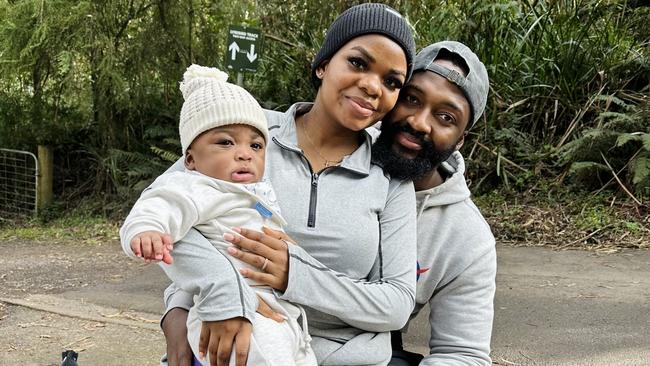Pandemic lockdowns a health boost for babies
Women are signing themselves up to return to simulated Covid isolation in the hopes of having safer, healthier pregnancies.

Covid lockdowns resulted in far fewer problems at birth, with women facing at-risk pregnancies now hoping to replicate the benefits.
During the pandemic, Australia saw the lowest rates on record for low birth weight and premature delivery, with fewer infants requiring inductions or intensive care.
Monash University researchers set out to establish the causes and see if they could be replicated to help ensure more full-term births. They hoped that by replicating lockdown conditions they could isolate the factor changing preterm birthrates, whether that was a reduction in physical activity, common infection risk or pollutant exposure.
Disability support worker Annie Stevens agreed to take part in a six-week simulation of pandemic conditions during the later stages of her pregnancy.
Ms Stevens, 24, had her first baby at 26 weeks and was happy for the chance to join the study and potentially improve her second pregnancy.
“I was hoping to get past 26 weeks this time around,” she said.

Ms Stevens was selected for a control group, meaning she did not have to isolate but was still monitored through her pregnancy. Other participants had to wear a mask at all times, while avoiding crowds and social outings. The Cranbourne East mother had a healthy baby, Khing, at 39 weeks.
“If I could go back and have an education around preterm birth, and how you could possibly prevent it, I would. But there is no such education,” she said. “What’s helped me … is having a big support system around me this time … to just give me that reassurance.”
Ten per cent of babies are born premature. Analysis of births in 2020 and 2021 indicated there were 15,000 fewer inductions at the time compared to the five years prior.

Monash Children’s Hospital neonatologist Atul Malhotra said few women were willing to sign up for another lockdown, but researchers were excited by the “social experiment” the pandemic offered.
“Melbourne had many lockdowns compared to most places in the worlds, so we had an opportunity to explore what is happening to these babies,” Dr Malhorta said. “If someone had been born at 32 to 33 weeks in the past, they were being born at 34 to 35 weeks then. “We were seeing this social experiment happening in real time.”
Dr Malhorta said there was less stimulation and irritation that could disrupt a pregnancy.
“Trial recruitment has been slow, because not many people want to go back to that pandemic lifestyle,” he said. “It’s not an easy trial to be part of, but these are women who are at a very high risk of preterm birth. If we can delay the birth of a baby by even one or two weeks, the pressure on the health system and the outcomes for babies and families is going to be much better.”
The study is ongoing. An observational study was published in the Australian and New Zealand Journal of Obstetrics and Gynaecology. It included 550 women, half of whom conceived between November 2019 and February 2020, and others from November 2018 to February 2019.





